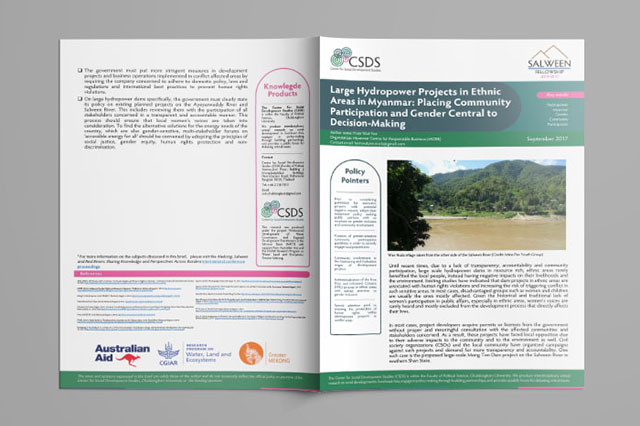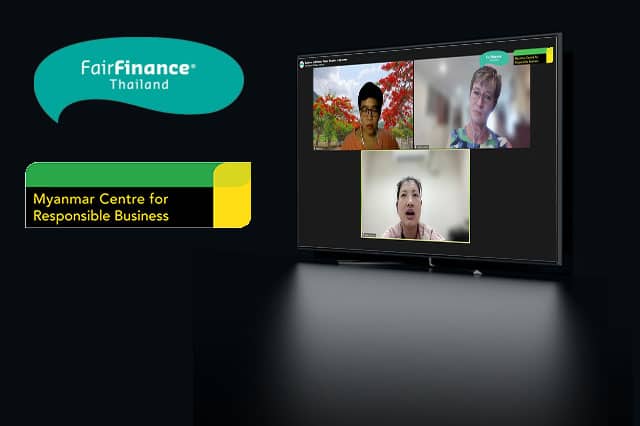Large Hydropower Projects in Ethnic Areas in Myanmar: Placing Community Participation and Gender Central to Decision Making

From 2016-2017, Hnin Wut Yee, MCRB’s Research and Outreach Manager participated in the MK 31 Nu-Thanlwin-Salween study project and this policy brief is prepared with the support of the project.
The project is led by the Centre for Social Development Studies (CSDS), Faculty of Political Science, Chulalongkorn University, Thailand. The project supports professional development of water governance and regional development practitioners in the Nu-Thanlwin-Salween Basin and is undertaken with support from the CGIAR Water-Land-Ecosystems Project and Australian Aid.
Summary
Until recent times, due to a lack of transparency, accountability and community participation, large scale hydropower dams in resource rich, ethnic areas rarely benefited the local people, instead having negative impacts on their livelihoods and the environment. Existing studies have indicated that dam projects in ethnic areas are associated with human rights violations and increasing the risk of triggering conflict in such sensitive areas. In most cases, disadvantaged groups such as women and children are usually the ones mostly affected. Given the historical and traditional lack of women’s participation in public affairs, especially in ethnic areas, women’s voices are rarely heard and mostly excluded from the development process that directly affects their lives.
In most cases, project developers acquire permits or licenses from the government without proper and meaningful consultation with the affected communities and stakeholders concerned. As a result, these projects have faced local opposition due to their adverse impacts to the community and to the environment as well. Civil society organizations (CSOs) and the local community have organized campaigns against such projects and demand for more transparency and accountability. One such case is the proposed large-scale Mong Ton Dam project on the Salween River in southern Shan State.
 English
English မြန်မာ
မြန်မာ မြန်မာ (unicode)
မြန်မာ (unicode)










